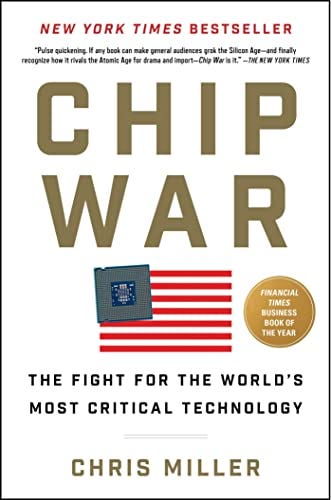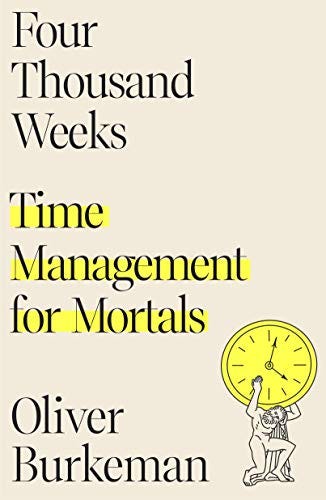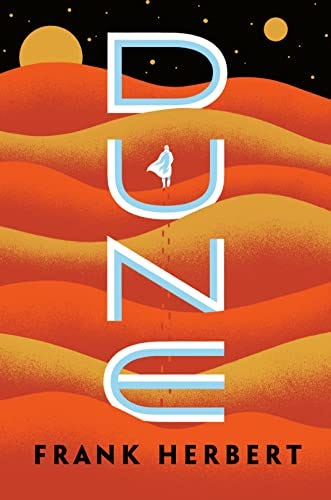In this week’s issue:
An essay on why reading books is still valuable
Three books I recommend
Before Sam Bankman-Fried or “SBF” fell into disgrace following the spectacular collapse of his crypto exchange FTX last fall, Sequoia Capital’s website hosted a long profile of him, which has since been taken down.1 There are many striking character moments with SBF in the piece, but one that really stuck with me was the part where he declared to the stunned journalist:
“I would never read a book. I’m very skeptical of books. I don’t want to say no book is ever worth reading, but I actually do believe something pretty close to that. I think, if you wrote a book, you fucked up, and it should have been a six-paragraph blog post.”
-From “Sam Bankman-Fried Has a Savior Complex—And Maybe You Should Too”, Adam Fisher
I was recently listening to an interview with Justin Welsh, a very successful online creator and entrepreneur, and he says something along similar lines, albeit not as extreme as SBF:
“I’m not a big reader… I might read a book every other month, maybe once a quarter. I know that’s not a popular thing to say.”
-From “Going Solo with Justin Welsh,” in Future Work/Life podcast
Later in the podcast, Justin goes on to say that he does read for inspiration and insight. But rather than books, he much prefers online content such as newsletters, tweet threads and blog posts. I have a feeling that this approach - light on books and heavy on online media - is quite common nowadays, particularly among those who have come of age in the internet era.
The digital revolution has massively democratized and augmented the channels through which the written word can be distributed. As a daily consumer of these channels myself, I can attest that quality of content and information conveyed through them can be easily on par with that of books and traditional print.
Still, I believe SBF, Justin Welsh, and others who are skeptical that book-reading has much value as a tool for maximizing human potential are missing something deeply important.
Here’s why I think you should still carve out the time for books.
Books train our minds 🧠
If you think that books are unnecessary because articles, tweets and blogs can deliver the same information more quickly, you’re missing the point. The unique value of reading books lies not in the acquisition of information. It lies in the training of the reader’s attentional, analytical and empathetic capacities.
In the gym of mental activities, reading books is like the deadlift: the king of exercises. At first glance, it’s hard to see much going on. But in reality, this form of reading is activating large swathes of mental “muscles” that other types of reading only activate in isolation.
Consuming text online like tweet threads and blogs mostly involves two skills: skimming and scrolling. Books, by virtue of their greater length and structural complexity, demand more: analysis, evaluation, recall and introspection.
Keep in mind: reading skills are not innate biological capacities, like seeing or walking. Reading is, in a lot of ways, an unnatural process. As with any non-innate learned skill, the way to reinforce them is through building a habit of regular practice and not letting those muscles atrophy.
Books slow us down 🐌
The downside of the proliferation of channels in today’s media ecosystem is information overwhelm. A 2009 study estimated that the average American consumed 34 gigabytes of data a day.2 That number surely has ramped up significantly since then.
Our natural response to the overwhelming volume of information at our fingertips is to speed up. We speed up our consumption and rate of switching from one text to the next, which in turn makes our engagement with language and meaning shallower and shallower.
Speed has many benefits, but what it is not conducive to are deep understanding and sound judgment. As Nobel winning economist Daniel Kahneman illustrated in his book Thinking Fast and Slow, fast modes of thought (what he calls “System 1”) are particularly prone to errors and bias.
Books, simply put, slow us down. They demand that we stop racing to the next thing. They make us move more patiently and deliberately. Having the ability to think both fast and slow - as circumstances call for - is what makes a person a sharper and more versatile thinker.
But, be picky; read good books 📚
There is a kernel of truth in what SBF said: nowadays, a lot of books out there really should have just been six-paragraph blog posts. Book publishing is increasingly a tool in the arsenal of personal brand building, wielded by people whose ideas don’t really require a book-length format to express. Skip, or at most skim, these books.
Read good books - books that are either packed with truly valuable information, or are richly layered and cleverly architected such that they entertain and inspire the reader. They are worth your time.
Three books I recommend 3️⃣
And on that note, here are three books that I recently read and found valuable:
1. Chip War: The Fight for the World's Most Critical Technology, by Chris Miller (2022)
To understand where the world is going in the coming decades - technologically, geopolitically - it’s crucial to understand the semiconductor industry. Microchips play a critical role in modern life and are a central focus of the burgeoning great-power competition between the US and China. I learned a ton from Chris Miller’s book, which unpacks the history of the global semiconductor industry and what lies ahead.
2. Four Thousand Weeks: Time Management for Mere Mortals, by Oliver Burkeman (2021)
The subtitle is somewhat misleading because, far from being yet another treatise on “time management” tips and strategies, this book is actually a nuanced meditation on the finitude of human life, the trap of efficiency, and the need to shift our mindset about how to use our limited time on earth. Oliver Burkeman also addresses the themes of patience and slowing down that I alluded to above.
3. Dune, by Frank Herbert (originally published 1965)
Reading fiction can be more challenging yet also more rewarding than reading non-fiction, and one that really took me to another world - in so many ways - is this genre-bending classic. People call it sci-fi book, but I think it’s so much more: a spy novel, a political parable, an ecological treatise, a psychological thriller. Frank Herbert inspired a generation of creators and thinkers, and once you read his masterpiece, you’ll understand why.
Adam Fisher’s profile of SBF is still cached here: “Sam Bankman-Fried Has a Savior Complex—And Maybe You Should Too”
“Part of the Daily American Diet, 34 Gigabytes of Data”, The New York Times





